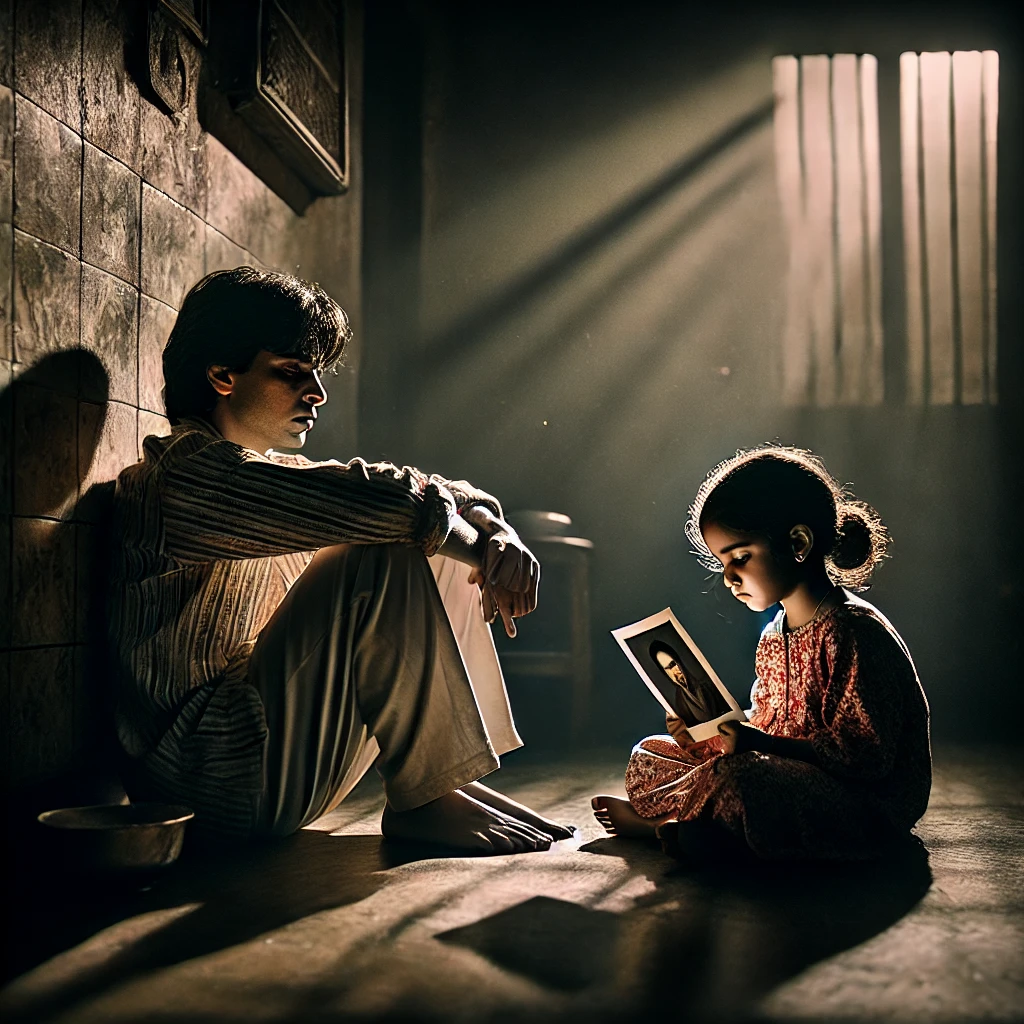First Chapter Summary:
This chapter sets up Rooh’s struggle with her father’s expectations, the sacrifices she made to meet them, and the void left by the lack of paternal love. It also introduces a glimmer of hope, symbolized by her encounter with music and the boy in the park, hinting at the journey of love and dreams ahead.

How to Move Forward:
- Introduction (You’ve already shared this!):
- Rooh’s birth, her father’s disappointment, and her longing for love and freedom.
- Challenges:
- Describe how Rooh’s restrictions grew with time:
- No friends, no hobbies, and constant fear of her father’s reaction.
- Internal conflict: Should she obey or follow her passion?
- Emotional struggles: feeling unloved, being isolated at school.
- Describe how Rooh’s restrictions grew with time:
- Turning Point:
- Introduce a life-changing moment (e.g., meeting someone who inspires her, rediscovering her hobbies, or standing up to her father).
- Success:
- Rooh gradually embraces her talents and gains confidence.
- Maybe she participates in a singing competition or collaborates with the boy from the park to create something beautiful, earning respect and admiration.
- Romantic Angle:
- The boy from the park could become her friend and later a love interest, helping her navigate self-doubt and encouraging her to pursue her dreams.
chapter 1: Born to Be Loved

The soft cries of a newborn echoed through the small hospital room. Her mother held her close, tears of joy streaming down her face. But the joy in the air was fleeting. Outside, her father paced the corridor, disappointment etched on his face. He had hoped for a boy, someone to carry forward his name and lessen his burden.
“It’s a girl,” the nurse announced hesitantly. Her father’s face stiffened. He walked into the room, glanced at the baby, and let out a sigh. “Rooh,” her mother said softly, gazing at her daughter. “She’ll be the soul of our home, even if he doesn’t see it now.”
Rooh grew up in a house where love was unevenly distributed. Her father’s smiles were rare, and his affection felt reserved for others. She saw it in the way he praised her cousins or complimented other girls in the neighborhood. But when it came to Rooh, there was a wall, invisible yet impenetrable.
As a child, Rooh tried to earn his attention. She sang songs, hoping he’d applaud. She brought home drawings from school, her little hands clutching the colorful pages tightly, only to be met with indifference. “Stop wasting time,” he’d say. “You should focus on more important things. You’re a girl—you’ll have to learn responsibility.”
By the time Rooh turned eight, she had learned to silence her laughter, hold back her tears, and follow the invisible rules set by her father. Singing, playing instruments, and even daydreaming about a life beyond the four walls of her home became distant memories. She buried her hobbies deep within her heart, locking them away where her father’s disapproval couldn’t reach.
At school, Rooh’s quiet demeanor made her blend into the background. While other children made friends, shared secrets, and formed bonds, Rooh kept to herself. She longed to join in, to laugh freely, but the fear of what her father might think held her back. What if someone saw her talking to a boy? What if her father found out? These thoughts haunted her.
But deep within her, there was a spark—a tiny ember of rebellion. It flared up every time she saw someone singing on TV or heard the strumming of a guitar. She knew she was meant for more, though she didn’t know how or when she’d find the courage to claim it.
One fateful afternoon, on her way back from school, Rooh heard something that stopped her in her tracks. The soft, melodic sound of a guitar filled the air, coming from a nearby park. She lingered by the gates, watching a group of young musicians rehearsing. They laughed, sang, and lost themselves in the music. It was a world she had only dreamed of, and for the first time in years, her heart ached—not with pain, but with longing.
One of the boys noticed her standing there. “Hey, you like music?” he called out, his voice kind and inviting. Rooh hesitated, her feet rooted to the spot. She nodded shyly, her cheeks flushing. “You should join us sometime,” he added with a smile.
Rooh wanted to say yes, but fear crept in. What if her father found out? What if this small act of curiosity spiraled into something she couldn’t control? She turned and walked away, her steps heavy with regret. Yet, that moment stayed with her. That night, as she sat in her room, she pulled out an old notebook where she had once scribbled lyrics as a child. She opened it and began to write again, her fingers trembling but her heart steady.
She didn’t know it yet, but that moment was the beginning of her journey—a journey of love, dreams, and rediscovering herself.
Chapter 2: The Silent Protector
Behind the sternness and strict rules, Rooh’s father carried a burden of unspoken love. While he rarely showed affection openly, there were moments when his actions spoke louder than words. He would tell her mother, Ritu, to prepare Rooh’s favorite meals or to get something she needed. It was his way of caring, though his harsh demeanor often overshadowed these gestures.
Ritu was Rooh’s anchor, her constant source of love and support. She called Rooh her princess and made her feel cherished in ways her father could not. Whether it was sneaking her a treat, buying her small gifts, or shielding her from her father’s temper, Ritu did it all with unwavering devotion.
“You’re my lucky charm,” Ritu would often say, stroking Rooh’s hair. “You’ll achieve great things one day.” These words were a balm to Rooh’s wounded heart, a reminder that she was loved deeply, even if her father’s love felt distant.
In the small moments they stole together, Ritu gave Rooh glimpses of freedom. When Rooh’s father forbade her from visiting friends, Ritu would find ways to send her quietly. “Go,” she’d whisper. “But be back before he notices.” Ritu’s love was a quiet rebellion against the oppressive environment they lived in, and it gave Rooh the courage to dream.
Yet, Rooh’s life outside the home was no less challenging. At school, her reserved nature made her an easy target for mockery. The other children laughed at her for sitting alone in the back row, for being too shy to participate in class, and for avoiding conversations. Their taunts stung, but Rooh bore them silently, retreating further into her shell.
Despite her isolation, Rooh found solace in small acts of creativity. She began writing secret songs and poems, pouring her feelings into words. Her notebook became her closest companion, a sanctuary where she could express the thoughts she couldn’t share with anyone else.
One day, while flipping through the pages of her notebook, Rooh noticed a pattern. Her poems often spoke of a girl who found her voice against all odds, who sang her heart out despite the world trying to silence her. It was a version of herself she yearned to become.
In her quiet moments, Rooh would wonder about her father’s past. Had life hardened him, or had he always been this way? She began noticing small signs that hinted at his unspoken care—the way he lingered outside her room when she cried or how he silently left money for her school supplies. These subtle gestures planted a seed of understanding in Rooh’s heart, though the gap between them remained vast.
As Rooh navigated the challenges of her childhood, one thing became clear: her mother’s unwavering love was her greatest strength. Ritu’s sacrifices and quiet acts of defiance were a testament to her belief in Rooh’s potential. It was this belief that kept Rooh’s dreams alive, even in the darkest moments.
And so, with her notebook in hand and her mother’s love in her heart, Rooh resolved to find her voice. She didn’t know how or when, but she knew she couldn’t let her dreams fade into silence.






